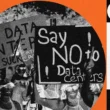Shortly after Donald Trump’s 2024 election victory, NSO Group co-founder Omri Lavie expressed optimism on social media, viewing the change in administration as a chance to revive his company’s fortunes. NSO Group, an Israeli spyware vendor notorious for alleged human rights abuses, has been seeking to engage more favorably with the U.S. government, which has barred it from doing business with American companies for over three years.
As part of their lobbying efforts, NSO Group has shifted strategies, now collaborating with the Vogel Group—a lobbying firm with strong connections to Trump’s past administration. This partnership aims to navigate the political landscape and potentially lift the restrictions imposed by the U.S. Department of Commerce.
The Vogel Group, founded by Alex Vogel, features lobbyists with significant experience in Trump’s presidency. Notable staff include Jonathan Fahey, who held various roles in Trump’s administration, and Hayden Jewett, who facilitated congressional coordination during the 2016 inauguration. Both are now focusing on lobbying for NSO in areas related to cybersecurity and surveillance policy.
NSO Group has drastically increased its lobbying spending, investing at least $1.8 million in pre-election efforts, primarily targeting Republicans. Despite this financial commitment, the firm remains on the Entity List, indicating the complexity of its situation in the current political climate.
Actors within NSO’s lobbying circle often have extensive ties to Trump or his administration, including former aides and significant campaign donors, exemplifying a "revolving door" dynamic that could provide valuable access to decision-makers.
Recent moves by NSO also suggest a pivot towards Republican lawmakers over executive branch members, reflecting the Biden administration’s stricter stance on spyware use. The Vogel Group’s registration under the Lobbying Disclosure Act (LDA) complicates monitoring these efforts because the LDA offers less transparency than required under the Foreign Agents Registration Act (FARA), making it harder to scrutinize their activities.
As the lobbying campaign unfolds, NSO Group hopes to engage effectively with the new administration, particularly regarding its status on the Entity List and the easing of restrictions on purchasing and selling technology within the U.S. The potential influence of such lobbying raises concerns about the implications for national security and human rights, as the company’s past dealings have provoked scrutiny for their connections to authoritarian regimes and targeted attacks on journalists and activists.
While NSO Group posits that barriers imposed by the Entity List are less severe than they appear, the broader implications of its lobbying and potential re-entry into the U.S. market remain to be seen. Concerns linger among advocacy and civil rights organizations that renewed access could lead to escalated abuses under less stringent oversight.
Experts like Senator Ron Wyden have expressed alarm over the implications of facilitating NSO’s operations in the U.S., warning that it could reignite threats to national security and empower authoritarian practices globally. As NSO continues to maneuver in the political landscape, its future interactions with government officials will be crucial in determining the trajectory of spyware regulation in the new administration.











